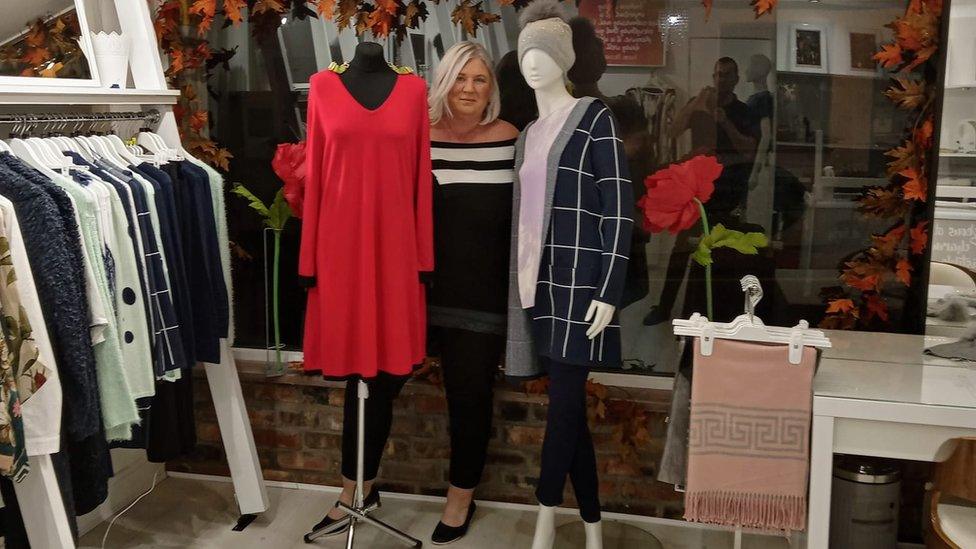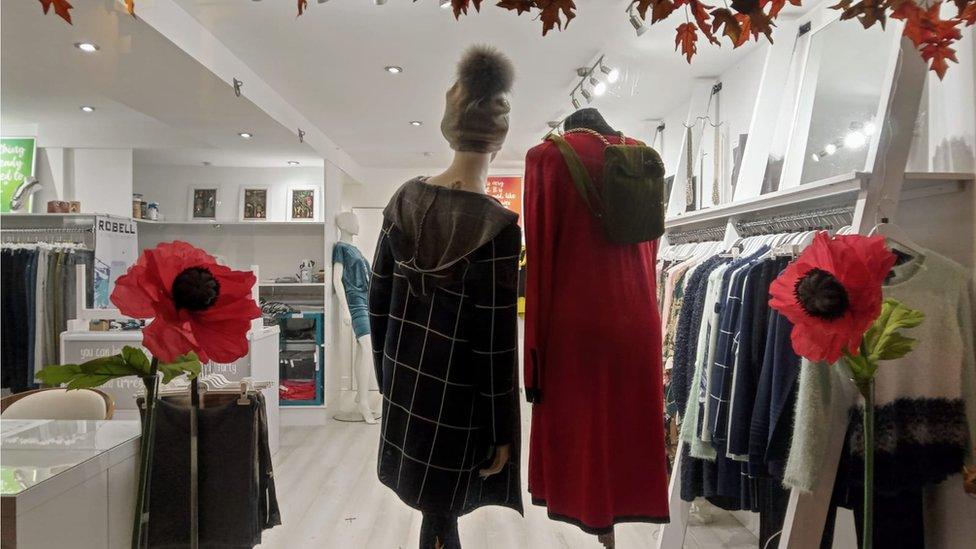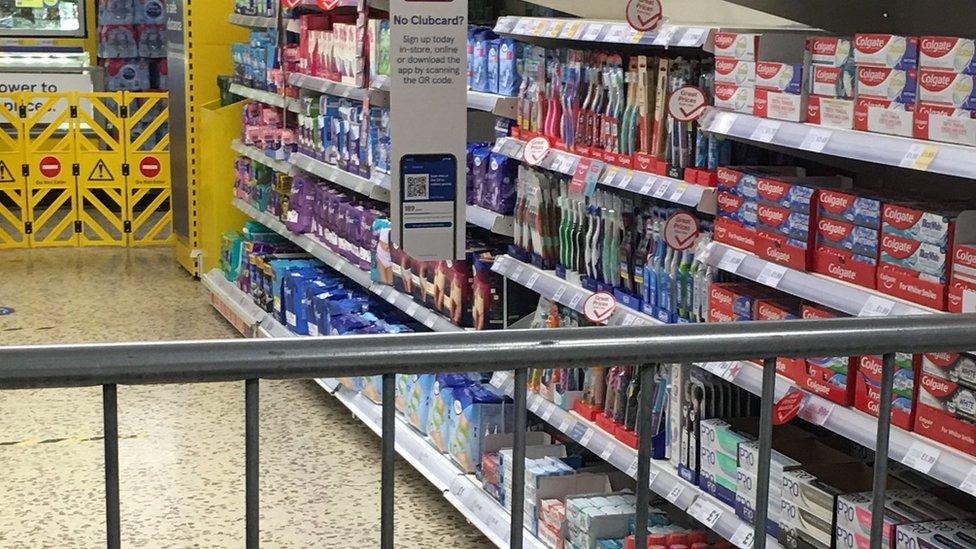Clothes and book sellers furious at lockdown rules
- Published

Naomi Walker says fashion boutiques 'are being slowly strangled to death'
Retailers forced to close because their businesses are deemed "non-essential" have hit out at the government's latest lockdown rules for England.
James Daunt, the boss of Waterstones, told the BBC that bookshops were "a support for people" and should be allowed to stay open.
Meanwhile, 60 independent fashion shops have teamed up to campaign against the impact of the coronavirus curbs.
Boutiques in Business say that the government should think again.
The organisation is led by fashion shop owner Amanda Leigh Slattery, who complains that "essential" retailers such as supermarkets and garden centres are being allowed to sell "non-essential" items including clothes.
"You can go to supermarkets and buy chinos, jeans or a white shirt - none of that is essential," she said.
Ms Leigh Slattery said her own shop, Maya Maya in Kendal, was managing to stay above water, but a lot of fashion boutiques "have £100,000 of stock sat in our stockrooms because we didn't sell it this summer".
In protest against the restrictions, the group of boutiques are turning their shop-window mannequins around, as they say that the government has turned its back on them.
"It just feels completely unfair. I'm absolutely livid," said another shop owner, Naomi Walker, who runs the Bombshell Betty Boutique in Garstang, Lancashire.

Mannequins are turned in Betty Bombshell Boutique as part of a protest against the restrictions
"Our landlords want our rent paid. Our suppliers want their invoices paid," said Ms Walker. "We can't sell a thing. In the last lockdown, I didn't take a penny.
"November is our busiest trading month and we're hamstrung. I feel we are being slowly strangled to death."
'Catastrophically unfair'
The Booksellers Association has also written to government ministers calling for independent bookshops to be classed as essential retailers during the lockdown, which will last until 2 December.
Waterstones' Mr Daunt told the BBC's Today programme: "I think we are a support for people as they work through their lockdowns.
"The government knows and does recognise that retail as a whole is very safe environment, which is why so much of it is open," he said.
How do you sell books in a lockdown?
He argued that "arbitrary lines" had been drawn, with smaller bookshops forced to shut, while large newsagents such as WHSmith, which sell books alongside other items, were able to stay open.
"It can be catastrophically unfair on some people. The question is, has the line been remotely sensibly drawn? And in this case, I think not."
Without a good run-up to the key Christmas trading period, the outlook is bleak for smaller bookshops, he said.
"I have absolutely no doubt that if small bookshops do not get their Christmas, that many of them will go out of business."
Christmas hit
The British Retail Consortium has said it does not agree with the decision to close "non-essential" retail outlets, arguing that their role in spreading the virus is minor.
It estimates that £2bn of sales will be lost in November.
Last week, the British Independent Retail Association called for greater government intervention over retail restrictions, external.
However, the Department For Business, Energy and Industrial Strategy maintained that the new restrictions had been brought in to limit social contact and slow the spread of coronavirus.
"We recognise this continues to be a very difficult period for businesses, which is why we've confirmed that there will be a full package of financial support in place," a government spokesperson said.
- Published6 November 2020

- Published26 October 2020
